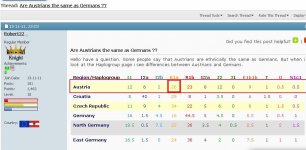Ike
Regular Member
- Messages
- 1,128
- Reaction score
- 93
- Points
- 0
So, why would Russian say torg- (trade, commerce) if it came from Venetian? It is not plausible that they've got it from Slovenes after Proto-Slavic diverted into branches. Your theory would imply that Proto-Slavic speaking population lived near Venetians, probably somewhere in the Balkans. That's the only way I see Russians getting that word.
Anyway, it's all futile, because we have not enough knowledge of Venetian, so any claims are just speculations. Better to leave it aside for now...


